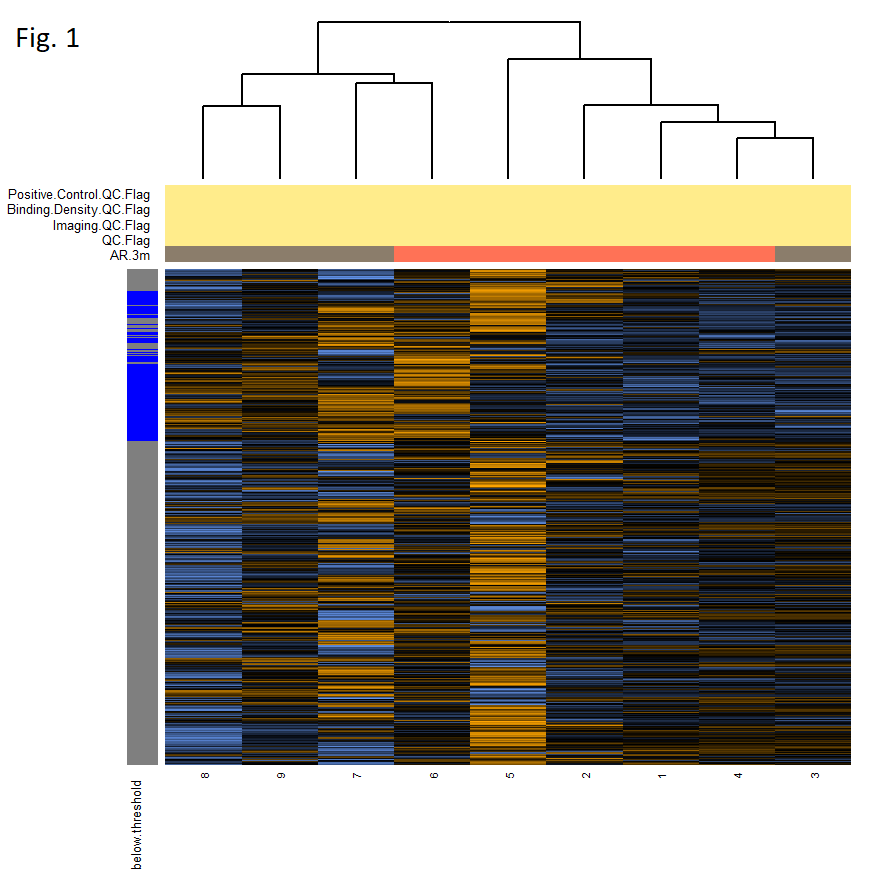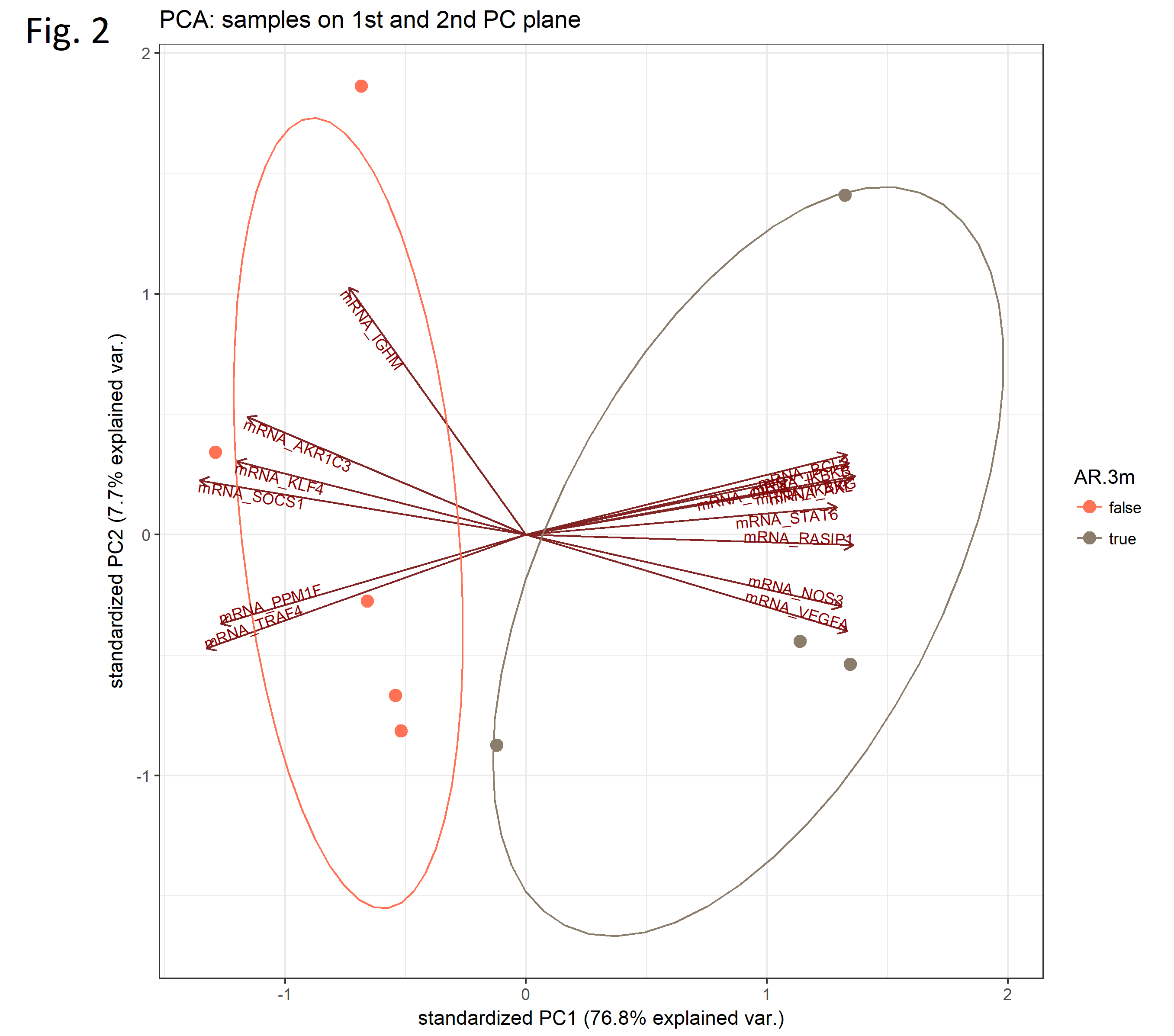Gene expression patterns after 2 hours of normothermic ex-vivo kidney perfusion potentially predict occurrence of future acute rejection: a preliminary analysis
Iacopo Cristoferi1,2,3, Elsaline Rijkse2,3, Sarah Bouari2,3, Myrthe van Baardwijk1,2,3,4, Dana A. M. Mustafa1,5, Martin J. Hoogduijn3,6, Ron W. F. de Bruin2,3, Carla C. Baan3,6, Andrew P. Stubbs1, Marian C. Clahsen-van Groningen1,3,7, Robert C. Minnee2,3.
1Department of Pathology & Clinical Bioinformatics, Erasmus MC, University Medical Center Rotterdam, Rotterdam, Netherlands; 2Division of HPB & Transplant Surgery, Department of Surgery, Erasmus MC, University Medical Center Rotterdam, Rotterdam, Netherlands; 3Erasmus MC Transplant Institute, Erasmus MC, University Medical Center Rotterdam, Rotterdam, Netherlands; 4Companion Diagnostics & Personalised Healthcare, Omnigen BV, Delft, Netherlands; 5The Tumor Immuno-Pathology Laboratory, Erasmus MC, University Medical Center Rotterdam, Rotterdam, Netherlands; 6Division of Nephrology and Transplantation, Department of Internal Medicine, Erasmus MC, University Medical Center Rotterdam, Rotterdam, Netherlands; 7Institute of Experimental Medicine and Systems Biology, RWTH Aachen University, Aachen, Germany
Introduction: Normothermic ex-vivo kidney perfusion (NEVKP) prior to kidney transplantation recreates a near-physiological environment, reconditioning the organ and allowing superior assessment of organ quality. The impact of this technology has yet to be exploited and might be significant for the use of marginal donor kidneys due to the potential for viability assessment. In this study, we aimed at investigating gene expression patterns of marginal donor kidneys undergoing 2 additional hours of NEVKP after hypothermic machine perfusion (HMP)/static cold storage (SCS) prior to transplantation.
Method: Eleven marginal donor kidneys included in this study were preserved under HMP (n = 8) or SCS (n = 3) after retrieval and subsequently underwent 2 hours of end-ischemic NEVKP prior to transplantation. During NEVKP, kidney biopsy samples were collected at the beginning of the procedure, after 1 h of perfusion, and after 2 h of perfusion. The biopsies were formalin-fixed paraffin-embedded (FFPE). Gene expression patterns were investigated using the NanoString® Banff-Human Organ Transplant Panel. Data were analyzed using the NanoString nSolver® Advanced Analysis module.
Results: Eleven kidney transplant recipients were initially included in this prospective study. For the current analysis, two patients did not have sufficient FFPE material for RNA assessment and were therefore excluded. Four transplant recipients were diagnosed with acute rejection within the first three months after transplantation while the other five showed stable graft function. Two distinct sample clusters based on gene expression patterns related to the development of an acute rejection episode within the first 3 months after transplantation could be identified after 2 h of NEVKP (Fig. 1-2). 
 Genes that, among other functions, are known to take part in immune regulation and apoptosis pathways (i.e. STAT6, BCL2, IGHM, SOCS1, AXL, RASIP1, TRAF4, CIITA, IKBKG, VEGFA, vCAM) appeared to be differentially, however not significantly (p < 0.05, q > 0.05), expressed at 2 h of NEVKP in transplants that subsequently developed acute rejection compared to those maintaining a stable graft function. Moreover, promising trends in multiple molecular pathway scores were found, including apoptosis, autophagy, oxidative stress, and the inflammasome.
Genes that, among other functions, are known to take part in immune regulation and apoptosis pathways (i.e. STAT6, BCL2, IGHM, SOCS1, AXL, RASIP1, TRAF4, CIITA, IKBKG, VEGFA, vCAM) appeared to be differentially, however not significantly (p < 0.05, q > 0.05), expressed at 2 h of NEVKP in transplants that subsequently developed acute rejection compared to those maintaining a stable graft function. Moreover, promising trends in multiple molecular pathway scores were found, including apoptosis, autophagy, oxidative stress, and the inflammasome.
Conclusion: NEVKP elicits different gene expression patterns between marginal kidneys that will successively develop acute rejection and those maintaining a stable graft function within the first three months following kidney transplantation. A higher expression of genes related to apoptosis might indicate a greater extent of cellular damage in the perfused graft, increasing antigen presentation and therefore the likeliness of acute rejection. The potential to predict acute rejection occurrence before transplantation will allow for a more tailored therapeutic management in order to improve kidney transplant outcome and recipient quality of life.
Coolsingel Foundation (‘Stichting Coolsingel’, project number 557). The authors express their gratitude to the Coolsingel Foundation (Stichting Coolsingel) for providing the funding to undertake this study.
